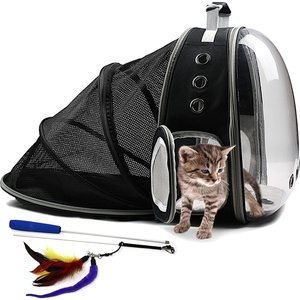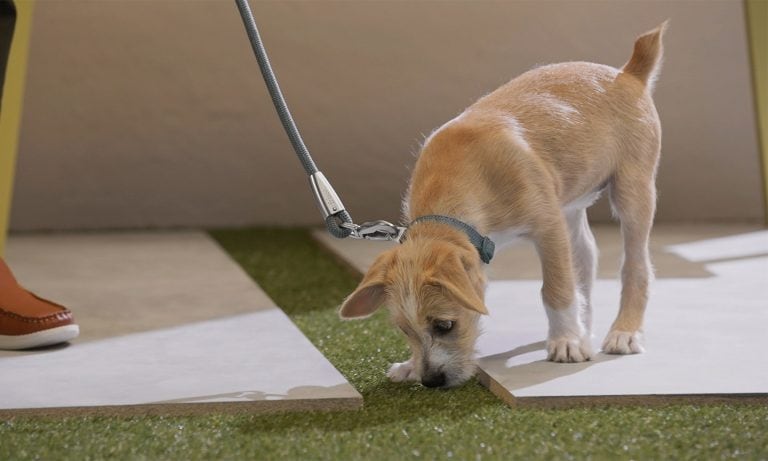You just welcomed a new pet into your family—congrats! Having a new furry, feathered or finned friend in the home is exciting and as you can probably attest to, involves a good deal of prep work. While you’ve stocked up on pet food, pet-proofed the house and bought more chew toys than you can count, there’s still one more thing you need to do: find a veterinarian. Finding a vet is important because they will be your partner in ensuring your new addition stays as healthy (and happy) as possible.
OK, but how do you even go about finding a vet in the first place? Don’t fret. This guide on how to find a good vet can help. You’ll learn where to search and what questions to ask, plus how you can be the best parent-patient to make sure your pet ultimately receives the very best care.
- Ask a fellow pet parent: Talk to your neighbors, friends and coworkers about vets they’ve had good experiences with for their own animals.
- Search online: A Google search can bring up nearby veterinarian offices. Many local and state veterinary medical associations have online directories you can search. There also are directories available for specialty veterinarians. Did you know there are 46 specialties officially recognized by the American Veterinary Medical Association? For example, you might be surprised to learn there are actually vets just for cats, or vets who specialize in emergency medicine, cardiology and epidemiology to name a few.
- Keep it local: Stay within 5 miles of where you live, says Dr. Kevin Kelley, DVM, emergency medicine veterinarian at BluePearl Pet Hospital in Clearwater, Florida. The last thing you want is to have to drive hours when your pet needs medical attention. You also want to find a veterinarian who can accommodate your work schedule, he adds.
Questions to Ask a Potential Vet
Once you’ve narrowed down your list, there are a bunch of questions that you can ask to help you choose a vet. Here are five common questions to ask as recommended by our veterinarians:
- Do you have evening and weekend hours? If you work a 9-5 job, this may be essential.
- Does the practice hold any certifications? The most common would be from the American Animal Hospital Association (AAHA). AAHA-accredited practices are evaluated on a slew of quality-assurance standards. Fear-free certifications, which denote anti- fear and -anxiety protocols are used in the practice, are also becoming more common.
- What is your protocol in case of emergencies? You’ll want to know if the practice can adequately handle emergencies in-house or outsources urgent care and if there is a doctor you can speak to 24/7. (Don’t expect overnight voicemails to be returned unless explicitly confirmed by your practice.)
- Do you have a list of referred specialists? Whether it’s a breed-specific issue or an acute or chronic illness that needs special attention, specialists will likely be a part of your pet’s health care at some point in their lives. “Most good quality veterinarians, if there's something beyond their comfort zone or skill set, they're going to know who to send you to,” says Dr. Kelley. “We live in an age of specialists for good reason.”
- How many vets are part of the practice, and will I see the same vet every time? “If they have more veterinarians on staff, they might have more availability,” says Dr. Kelley. A larger practice may be helpful with scheduling, but this also means you might not see the same vet every time—something to note if this personal relationship and consistency matters to you.
Before you even bring a new pet home.
Within 5 miles.
True
Veterinarians can choose to specialize in feline care, along with 40+ other specialties, such as nutrition and behavior.
Best Practices for Being a Good Pet Parent at the Vet
Finding a vet is one of the biggest initial hurdles you’ll face as a new pet parent, but after you’ve settled on a practice you can trust, you’ll want to remain engaged and informed to make the most of every visit. After all, vet visits don’t come cheap. (P.S. Pet insurance can help offset the costs of health care, emergency services, and unexpected surgeries. Here’s what you need to know about getting pet insurance.)
Whether it’s routine vaccinations or something more concerning, here are a few best practices from vets to ensure your four-legged family member always receives the best care:
- Bring samples/paperwork: If you’re coming in for a routine checkup, bring fecal and urine samples. We know—gross! But the vet will almost certainly ask for this, and bringing them with you prevents the need for a stressful retrieval or another drop-off visit. If you’re changing vets or visiting a specialist, make sure you come prepared with your pet’s full medical record.
- Have a checklist: Want to have a lump checked? Has your cat been extra itchy lately? Need prescriptions filled? Have a running list so you don’t forget anything during your appointment. “Show up at a visit with your veterinarian with a plan,” says Dr. Hohenhaus.
- Be open-minded: Remember that at the end of the day, no amount of dog mom-instinct or Googling can compare to the medical expertise of your vet. While you might want to feed your dog a raw diet or grain-free diet, your vet might not agree. Stay open-minded to their philosophy, and if you ultimately want to seek a second opinion, that’s an option. (Here’s more advice on how to choose the best dog food, BTW.)
- Remain patient: Vets are busier now than ever before, so there may be a delay during your appointment. “We're doing the best we can to help you and your pet as quickly as we can,” says Dr. Kelley. And for some much-needed perspective, know that oftentimes, if you’re waiting, “it's generally because there's an animal sicker than yours, and we're doing our best to help them,” he adds.
- Ask questions: “You [want to] find a veterinarian who communicates very clearly and who understands how to educate you about your questions and problems,” says Dr. Kelley. Ask for clarification on anything that’s unclear so you can understand what's going on and why before you leave.
If you do forget to ask your vet something or a question comes up after hours—say you’re not sure if your cat is getting enough exercise or you’re having trouble potty training your puppy—you can still get expert advice through Chewy’s new Connect With a Vet service. It essentially puts expert docs at your disposal for any and all questions—big, small, gross, weird... ask them anything!
“A service like this can really help you understand the severity of what you're facing, whether this is something that you can wait to schedule an appointment for, or whether this is something that you need to deal with right now,” says Dr. Katy Nelson, DVM, senior veterinarian with Chewy Health.
Connect With a Vet is available daily from 8 a.m. to 11 p.m. ET, and allows you to chat with a licensed veterinarian “within seconds,” says Dr. Nelson, either for a fee or, if you’re a Chewy Autoship customer, for free. This real-time advice makes managing anxiety over your dog eating a banana or staring blankly at the wall (aka hovering ghost) so much easier if you can’t get in to see or speak with your primary vet for days or even weeks.
Gear for Getting to the Vet
Are you prepared to drive to your next vet appointment? Make sure your car is outfitted with safety gear and anti-anxiety tools to keep your pet safe and stress-free. Find out more about how to keep your pet safe in the car.
Pet carriers are great for car travel, too, as well as keeping your pet calm in the waiting room. Here are a few options we love:
More Ways to Keep Pets Healthy
Share:














